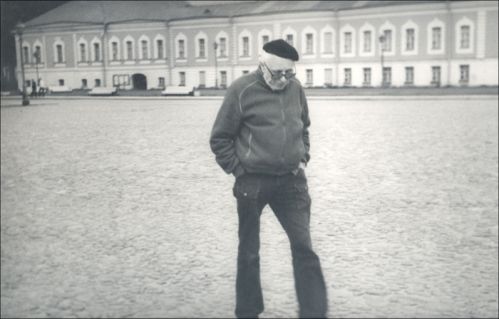The great physicist who managed to explain the phenomenon of “baryon asymmetry”—one of the main mysteries of the Universe, the author of several bold cosmological hypotheses that have not lost their scientific relevance to this day? Hardly. For that, one needs to have at least some understanding of modern physics, and it is not in fashion these days.
The outstanding engineer who designed the Soviet hydrogen bomb? That is closer to the truth. On television, from where modern people mainly draw their information, Academician Sakharov is most often mentioned precisely as the “father of the Soviet thermonuclear bomb.” (Today, the internet is a serious competitor to television; by the way, how many internet users know that Sakharov was also a brilliant futurologist who predicted the emergence of the internet?)
A consistent fighter against the military threat, a man whose proposals formed the basis of the 1963 Moscow Treaty Banning Nuclear Weapon Tests in the Atmosphere, in Outer Space and Under Water? It seems there are no published sources on Sakharov’s role in preparing the Treaty other than Andrei Dmitrievich’s own memoirs; but how many have read those memoirs?

An outstanding critic of the Soviet system, the most famous dissident of the 1970s, who constantly and insistently spoke out for the release of political prisoners in the USSR and around the world? A political figure, an organizer and one of the leaders of the first parliamentary opposition in the history of the USSR since 1918? I think the general public has some vague idea about all this. Even in most school textbooks of the 1990s, Sakharov’s public activities were mentioned, albeit briefly. And those who are now over forty saw the academician on the rostrum of the Congress of People’s Deputies with their own eyes.
Here is the Sakharov that almost no one remembers—the creator of a new public philosophy, a thinker who tried to formulate answers to the global challenges of the time and point humanity towards possible ways out of its dead ends. They have completely forgotten about Sakharov the essayist, author of “Reflections on Progress, Peaceful Coexistence, and Intellectual Freedom,” “The World in Half a Century,” and “Alarm and Hope.” Neither here nor abroad has Sakharov’s Nobel lecture, “Peace, Progress, Human Rights,” been read or heard. Sakharov’s twenty-year sermon, the meaning of which can be expressed in a single phrase, “To survive, humanity must overcome its disunity,” has not become a subject of broad international discussion.
But there is nothing surprising in this. In today’s world, the paladins of Reason are not in favor. And the issue is not just that Soviet social stereotypes are being revived in Russia, that the country is living under the slogan “Back to the USSR!,” that a significant part of the population longs not for Sakharov, but for Stalin. This too is a myth: the country is not rushing towards socialism, but towards triumphant glamour—the final stage of communism. The images of the past must also correspond to the general glamorous ideal. And neither Putin nor Stalin has anything to do with it here. The country does not long for Stalin—it longs for “Stalin.Live.”
This is not a question of one understanding of national history or another; it is a rejection of historical existence altogether—in favor of a life outside of history, in the space of a mythologized, irrational, mystical consciousness. I am afraid this is not only a Russian, but a universal trend.
The memory of Sakharov has not become part of the national myth—that is what those who claim that Andrei Dmitrievich has been “forgotten” want to say. But this memory could not fit into any mythology, for Sakharov was probably the last great rationalist of the 20th century, and it is very possible that his social philosophy is destined to become humanity’s last line of defense against the onset of a new Middle Ages.
So there is no need to worry prematurely.